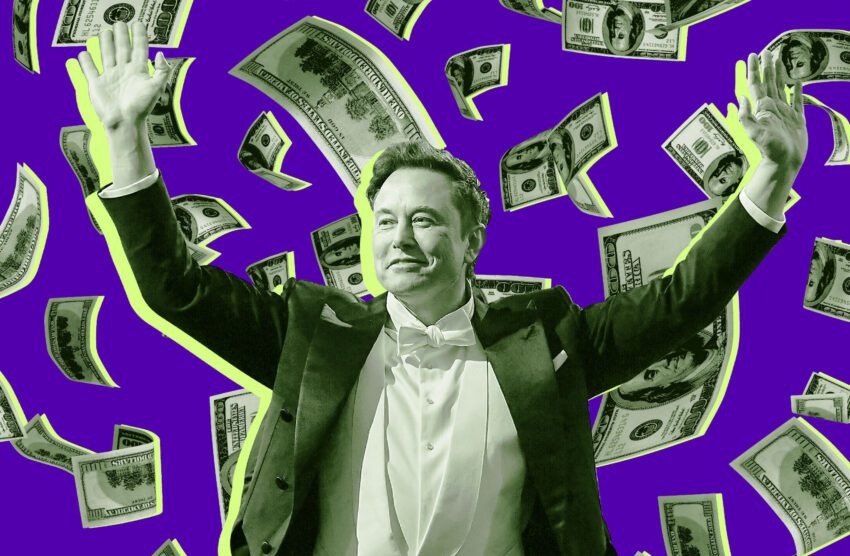
tesla shareholders approve elon musk s 1 Tesla shareholders voted Thursday to approve Elon Musk’s staggering new pay package, in a move aimed at retaining the controversial CEO’s leadership during a time of great upheaval for the automaker. Over 75 percent of shares voted in favor of the proposal.
tesla shareholders approve elon musk s 1
Overview of the Pay Package
The approved vote grants Musk significant control over Tesla, along with the distinction of receiving the largest corporate payout in history. The final tally of the vote is expected to be disclosed in a Securities and Exchange Commission filing in the coming days. This monumental decision underscores the board’s commitment to keeping Musk at the helm, especially as the company navigates a turbulent phase marked by competitive pressures and shifting market dynamics.
Shareholder Meeting Highlights
Musk took the stage at the shareholder meeting in Austin, Texas, to enthusiastic chants of “Elon! Elon!” and was flanked by dancing Optimus robots, a nod to Tesla’s ambitions in robotics. “What we’re about to embark upon is not merely a new chapter of the future of Tesla, but a whole new book,” he proclaimed, signaling his vision for the company’s future.
Details of the Compensation Plan
The proposed pay package, initially put forward by the board last September, would award Musk more than 423 million additional shares, increasing his stake in Tesla from approximately 15 percent to about 25 percent. However, this substantial compensation is contingent upon Musk achieving a series of ambitious milestones. These include:
- Raising Tesla’s market capitalization from its current $1.5 trillion to $8.5 trillion over the next decade.
- Putting into service 1 million robotaxis.
- Selling an additional 12 million cars.
- Securing 10 million Full Self-Driving subscriptions.
- Producing 1 million humanoid robots.
These targets not only reflect Musk’s grand vision for Tesla but also illustrate the high stakes involved in his leadership. Achieving such ambitious goals would position Tesla as a dominant player not just in the automotive sector but also in the burgeoning fields of artificial intelligence and robotics.
Concerns from Shareholders
Despite the overwhelming approval from shareholders, the vote faced opposition from some of Tesla’s largest investors. Notably, Norges Bank Investment Management, which manages Norway’s sovereign wealth fund, along with several smaller public pension funds, including the American Federation of Teachers and various New York City retirement systems, expressed their dissent. Major proxy advisory firms such as Institutional Shareholder Services and Glass Lewis also came out against the pay proposal, raising concerns about the implications of such a lucrative package for corporate governance and accountability.
Previous Compensation Package Controversies
Musk’s current compensation package, valued at over $50 billion, was invalidated by a Delaware court last year. The court found that Tesla’s board lacked sufficient independence from Musk, leading to questions about the appropriateness of the compensation structure. Despite shareholders voting twice to approve the hefty compensation, the judge upheld her ruling blocking it. Tesla has since appealed this decision to the Delaware Supreme Court, which adds another layer of complexity to the ongoing saga of Musk’s compensation.
This legal battle prompted Musk to propose relocating Tesla’s legal home from Delaware to Texas, a move that shareholders also approved. This relocation is seen as part of Musk’s broader strategy to consolidate his influence and control over the company, particularly as he faces increasing scrutiny from various stakeholders.
The Board’s Justification
The Tesla board has been vocal about the necessity of Musk’s leadership during a critical juncture for the company. They argue that Tesla is on the brink of becoming a leader in AI and robotics, which necessitates Musk’s steady hand at the helm. However, the reality is that Tesla’s position is more precarious than ever. The company faces numerous challenges, including declining sales, increased competition, and regulatory hurdles.
Market Challenges and Competition
Musk’s support for former President Donald Trump and his initiatives at the Department of Government Efficiency, which included significant layoffs and cuts to humanitarian aid programs, have sparked a nationwide protest movement. This backlash has contributed to a steep drop in Tesla’s sales, raising questions about the company’s future viability. Furthermore, the expiration of the federal EV tax credit is expected to exacerbate these challenges, potentially leading to an even further decline in sales.
In addition to these external pressures, Tesla is grappling with fierce competition from other automakers, particularly those in China. Companies like BYD and NIO are rapidly gaining market share, forcing Tesla to reassess its strategies and offerings. The competitive landscape has become increasingly crowded, with traditional automakers and new entrants alike investing heavily in electric vehicle technology.
Technological Aspirations vs. Reality
Whether Musk can achieve the audacious goals outlined in the new pay package remains uncertain. Tesla rolled out its first robotaxi service in Austin earlier this year, but the service fell short of Musk’s earlier predictions. Currently, the robotaxis still require safety monitors, either in the driver or passenger seat, although Musk has indicated that these could be removed by the end of the year. This cautious approach reflects the complexities and risks involved in deploying autonomous vehicles at scale.
The company’s only new product since 2020, the Cybertruck, has been widely regarded as a consumer flop, failing to meet the high expectations set during its initial unveiling. This lack of successful product launches raises questions about Tesla’s innovation pipeline and its ability to maintain its competitive edge in the rapidly evolving EV market.
Future Outlook
As Tesla continues to navigate these challenges, the implications of Musk’s new pay package extend beyond corporate governance. The board’s decision to grant Musk such a substantial compensation package raises questions about the long-term sustainability of Tesla’s business model and its ability to adapt to changing market conditions. Investors will be closely monitoring Musk’s performance against the ambitious targets set forth in the pay package, as failure to meet these milestones could have significant repercussions for both Musk and Tesla.
In conclusion, the approval of Elon Musk’s $1 trillion pay package marks a pivotal moment for Tesla, reflecting both the board’s confidence in Musk’s leadership and the high stakes involved in the company’s future. As Tesla faces mounting pressures from competitors and market dynamics, the success of this ambitious compensation plan will depend on Musk’s ability to deliver on his vision for the company.
Was this helpful?
Last Modified: November 7, 2025 at 6:38 am
0 views















